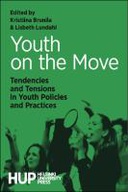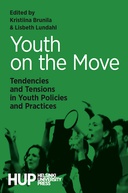Explore

Youth on the Move
The book addresses one of the most urgent social problems in many countries, the uncertain school-to-work transitions of young people. As a result, a ‘transition machinery’ has been created, consisting of various education and training measures realised by e.g. teachers and youth workers.
The volume demonstrates that discourses related to youth transitions do not simply describe young adults but create them. For example, young people are expected to be active citizens who make themselves attractive to employers, and those who fail in doing so may be labelled having psychological deficiencies. When failing transitions, resulting in lack of higher education or unemployment, are treated as individual’s problems rather than rising from structural factors, the solutions are likewise individualized. The book thus underlines the importance of analysing power relations reflected by gender, health, social class, and ethnicity.
The articles of the book combine perspectives from young people, policymakers, teachers, and youth workers in Iceland, Finland, Sweden, and England.
The editors of the book are Kristiina Brunila, professor of social justice and equality in education at University of Helsinki, and Lisbeth Lundahl, professor of educational work at Umeå University.
"In a time of an increasingly segregated school system and a growing precariat on the labour market, there is an urgent need to understand the political and cultural mechanisms that are feeding an unjust political system. Youth on the Move: Tendencies and Tensions in Youth Policies and Practices is an inevitable book for researchers, policymakers and practitioners engaging in equal future possibilities for young people. It takes on the problem not by providing simple solutions on complex problems, but through revealing how good intentions to make young people employable are, in fact, locking them up in segregating norms. Beautifully, the different chapters of the book move between concrete examples, theoretical challenges and political insights. It helps the reader to understand how historically rooted understandings of ‘youth at risk’ and ‘education as the solution of social problems’ take different shapes in the current political landscape – but also how we can resist getting stuck in norms of who is seen as competent, vulnerable, healthy, employable, and/or educable. Youth on the Move helps us to ask necessary critical questions regarding how society (does not) facilitate young people’s transition into labour market and adulthood. I warmly recommend the volume."
- Malin Ideland, Professor in Educational Science, Malmö University.
This book is included in DOAB.
Why read this book? Have your say.
You must be logged in to comment.

